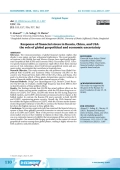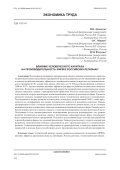Relevance. The interconnectedness of global financial markets implies that shocks in one region can have widespread implications. The recent geopolitical tensions in the Middle East and Western Europe, have significantly heightened Geopolitical Risk (GPR) and Economic Policy Uncertainty (EPU). Country-specific financial stability can experience ripple effects from these external sources of risk, indicating a direct link between geopolitical events and economic policy uncertainties that contribute to financial stress. Research Objective. This study examines the risk spillovers from Global Geopolitical Risk (GLGPR) and Economic Policy Uncertainty (GLEPU) to the country-wise Financial Stress Index (FSI) of the USA, China, and Russia. Our goal is to determine which of these giants demonstrates superior resilience in terms of financial stability against these external sources of risks. Data and Methods. Using Cross-Quantilogram (CQ), Partial-CQ and Recursive-CQ (R-CQ), we evaluate a weekly high-frequency data from 2000 to 2023 to identify patterns of these spillover effects. Results. Our findings indicate that GLGPR has mixed spillover effects on the USA’s FSI under varying market conditions, while the FSI shows long-term resilience to GLEPU. For China, GLGPR only boosts the FSI during long-term bullish markets, and GLEPU demonstrates pronounced adverse impact at the bullish market. In contrast, the Russian FSI reacts unevenly to both GLGPR and GLEPU, experiencing greater severity. Overall, the USA’s financial market exhibits the highest resilience to GLEPU, while the Chinese market demonstrates the greatest resilience to GLGPR. In contrast, the Russian financial market shows the highest exposure to these global risks. Conclusions. No previous empirical study has examined the financial stress response of these three globally powerful economies to external sources of risk such as GLGPR and GLEPU. Most of the previous research focuses solely on stock market returns or their volatility in relation to these risks, whereas we focus on a composite measure of stability that encompasses all four sectors of a financial market. Our research fills this gap, particularly in the context of current geopolitical tensions among these global players, making it highly relevant for both academics and policymakers.
Исследование посвящено эмпирическому анализу влияния человеческого капитала на производительность российских предприятий. Цель исследования состоит в выявлении характера и степени воздействия внешних эффектов от человеческого капитала в регионе на производительность предприятий. На основе базы данных «Руслана» по 76 769 российским фирмам за период с 2006 по 2015 г. оценено влияние внешних эффектов для фирм от развития человеческого капитала в регионе. В качестве основной эмпирической модели была разработана эконометрическая модель анализа панельных данных с фиксированными эффектами. В статье также представлены особенности каналов, посредством которых человеческий капитал влияет на деятельность фирм. Уделяется внимание моделям, посвященным взаимосвязи между человеческим капиталом и инновациями. Рассматривается индекс развития человеческого потенциала, разработанный ООН, а также предлагается его модификация для оценки человеческого капитала в российских регионах. Индекс интерпретируется как с позиции оценки достигнутого в регионах уровня жизни, так и с позиции возможного вклада человеческого капитала в повышение производительности фирм. Оценено место России в мире в контексте данного индекса, а также проанализирована ситуация в регионах России. Полученные в ходе эконометрического моделирования результаты подтверждают, что уровень развития человеческого капитала, наряду с внутренними характеристиками фирм, способствует росту производительности предприятий. Результаты исследования будут полезны для разработки стратегий развития фирм и их успешной реализации. Также результаты могут служить основой для разработки экономической политики, нацеленной на рост производительности и экономическое развитие. Совершенствование систем образования и здравоохранения, а также рост равенства возможностей и доходов, будут способствовать росту производительности российских предприятий.

